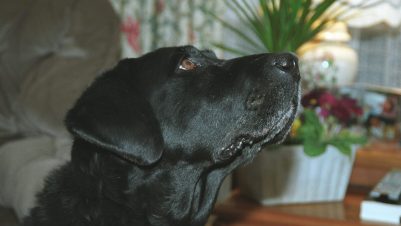To qualify as a veterinary surgeon takes a lot of dedication, time and a persistent willingness to learn by gaining as much first-hand experience of “practice life” as possible.
The Sussex Equine Hospital based at Ashington in West Sussex has run an intern training programme now for 15 years. Ed Lyall, one of the practice Directors, says: “Initially, we took only one intern. Then it increased over the years to three and now we are taking up to four.”
Director Rob Van Pelt, who was responsible for the design of the practice’s new hospital, was determined to take the interns’ accommodation into consideration. “It was as a result of our past success that I included four purpose-build intern accommodation rooms along with a nice informal social area for them to relax in,” he says. “We wanted to invest in our interns.”
Ed adds: “Our new programme enables the interns to spend a year in the hospital and then follow this up with six months on the road as an ambulatory intern. By doing this, they can put into practice out in the field what they experienced under supervision in the clinic.”
The first intern was Andrew Crawford, Cert ES (Orth), Dip ECVS, MRCVS, some 16 years ago, who has since returned to the practice as a Director. Proof, it seems, that this system works.
One of the three interns currently at the hospital is Ludovica Bellazzi, who hails from Italy and qualified from the University of Parma. After working in Italy, she relocated to Ireland for six months working in an AI centre, before securing an internship at the Sussex Equine Hospital in March 2018.

“I wanted to see first-hand how a larger practice worked while at the same time gaining a much wider experience in veterinary medicine. In my first six months, I will be working in the clinic and then a further six months as an ambulatory vet alongside Director Ed Lyall. I’ll then return for another six months in the clinic,” says Ludovica.
She adds: “At the moment, there are three interns here and from September, there will be four. There are many skilled vets on the team and they are willing to share their experience with us. The practice has invested much in the new hospital and has the latest state-of-the-art equipment. The accommodation is really excellent and gives us interns a certain amount of independence and the ability to relax when not on duty.”
“Living above the practice also gives us the opportunity to help on emergency calls if needed. Best of all, I wake up every morning and look forward to what I am doing. I feel very much part of the team and, being close to Gatwick, I can hop on a flight to see the family back home!”
Intern Zoe Hayward is busy assisting vet Chris Baldwin in the recovery room following surgery on a horse. Zoe, now in her fifth month, qualified at the Royal Veterinary College.
The interns are principally trained by the four surgeons and one internal medic working at the hospital, and the programmes are supervised by the hospital Director Andrew Crawford. Andrew tells us: “The hospital has been training interns for 16 years. We advertise in the veterinary press and following a shortlist, usually by a Skype interview as the candidates are from all over the world, Matt and I hold face-to-face interviews together with a tour of the practice. At this stage we determine what the candidates are hoping to gain from the position and we use this at three-month reviews to make sure they are attaining their goals.”

The hospital also trains a surgical resident, currently Chris Baldwin. “As far as the interns are concerned, we are there to guide them through all their requirements related to clinical procedures before they have six months as an ambulatory vet. They will be able to take this knowledge with them on their daily calls,” he says.
Keen to see intern education forge ahead at the hospital is Matt Waterhouse, another Director at the hospital. “It works well for both parties and provides a way for young vets to gain experience in equine practice in the rather safer environment of a hospital, where they can be mentored and instructed,” he says.

“It also provides us with a ready source of enthusiastic young vets that are keen to learn and work hard and which can result in some staying on as assistants within the practice,” Matt adds.
“Not all will want to become ambulatory vets. Some will use it as a stepping stone to residency at a university, where they will have been expected to have completed an internship. Others will use it as a way to move on to bigger and better things within the profession or the all-important associated veterinary industry.”
Matt says the number of European vets coming into the country reflects on the profession as a whole. “It is a respected and mature industry, ahead of many other countries. There is no doubt the quality of intern we are now seeing is excellent. They are keen, willing to learn and appreciate the respect they are given by all members of the Sussex Equine Hospital team.” Both interns and the practice vets are more than keen to see this continue.












